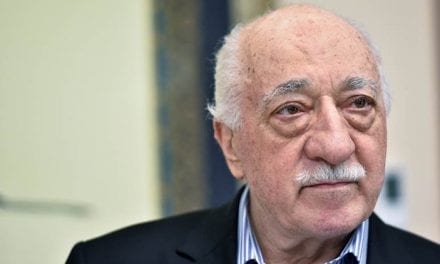Kerin Hope and Tony Barber, Financial Times
An election offers many hope but even a Syriza-led government may have to prolong austerity
“We get two bags almost every day. We couldn’t survive without them,” says Spyros Angeli, an Albanian construction worker with three children who settled in Greece two decades ago. “I haven’t worked for nearly three years, and my wife gave up her sewing job recently because she hadn’t been paid in six months. Our savings have almost run out.”
Will Greece stay in the eurozone or drop out? Will it continue reforms of the economy and state administration that its creditors regard as essential conditions of future assistance, or will its voters identify these reforms so closely with foreign-imposed austerity that they say good riddance to both? And will Greece’s troubles infect the rest of the eurozone, as they did so dangerously from 2010 to 2012?
Pensions have been reduced by an average of 40 per cent; most unemployment benefits are cut after 12 months; and charges for prescription drugs have soared by more than 30 per cent. Many long-term unemployed lose access to the state healthcare service. Middle-class Greeks face a crippling extra tax burden from new levies on property, a preferred investment given the nation’s historically high inflation.
In this month’s election, voters will face a choice: to accept more austerity measures in return for promises of financial stability and gradual recovery under the governing centre-right New Democracy party, or to back Syriza, the radical leftist opposition which is leading opinion polls by around 4 percentage points after pledging to demand softer bailout terms and restore social benefits.
To address what he calls a “humanitarian crisis”, Alexis Tsipras, the Syriza leader, has set out a €2bn programme for Greeks living below the poverty line. It includes higher pensions, free electricity for 300,000 families (Greece’s population is 11m), free medicine and hospital care for the unemployed and subsidised housing for 25,000 low-income families in Athens. All this is to be paid for by a crackdown on wasteful spending and tax evasion by the wealthy, Mr Tsipras assures Greeks.
Syriza also promises to raise the minimum monthly wage almost 50 per cent to €750, a move employers say would hurt businesses that have survived a six-year recession by slashing costs.
“We made it through the crisis because the staff accepted wages below the minimum level, and all the family worked during the summer season,” says Emmanuel Papazoglou, who runs a hotel on Crete. “Bookings look good for 2015, but I’m scared of what might happen if Syriza comes to power.”
Greece’s partners in the eurozone do not admit to being scared of Mr Tsipras. But they have become so used to advising, admonishing and administering Greece over the past five years that, when it comes to elections, they no longer bother to conceal their preferences.
“A strong commitment to Europe and broad support among the Greek voters and political leaders for the necessary growth-friendly reform process will be essential for Greece to thrive again within the euro area,” Pierre Moscovici, the EU economic affairs commissioner, said on Monday.
His message: voters should beware false promises from Mr Tsipras about what a Syriza-led government could deliver. For the EU is quietly confident that no Greek government will be able to defy the creditors’ demands for renewed reforms as the price of financial aid, without which Greece’s prospects of eurozone survival would slip like sand through politicians’ fingers.
One powerful card in the creditors’ hands is that Greece’s funding needs in 2015-16 amount to about €28bn. Its ability to tap world financial markets is so weak that it has almost nowhere to turn except to the EU and IMF. The more radical the policies by a Syriza-led government, the more private investors would avoid buying Greek debt.
A second card is that, if Mr Tsipras were to become prime minister after January 25, he would have little more than one month to negotiate with the creditors before the EU component of Greece’s bailout, extended last month until February 28, runs out. With Greece’s lenders owed more than €4.5bn in bond and interest payments by the end of March, and a total of €6.5bn due in July and August, Mr Tsipras would be under immense pressure to cut a deal.
For all their weary recognition that no post-2009 Greek government has modernised the state and liberalised the economy to the extent required, EU negotiators will insist on more structural reforms and — if Mr Tsipras were in power — much less fresh public expenditure than he is promising.
A third card is that, if Greece is to benefit from the government bond purchase programme that the European Central Bank is widely expected to unveil on January 22, a Syriza-led government would have no choice but to commit itself to a path of reform. It is unimaginable that the ECB would buy Greek bonds unless a government in Athens had first struck a deal on these terms with its official creditors.
In theory, Mr Tsipras could go for the nuclear option of a debt default. In practice, this seems very unlikely. It would once again raise the question of Greece’s place in the eurozone, even the EU itself. Greece’s pro-European business and political elites would regard such an outcome as a calamity. Nowadays, even Mr Tsipras does not advocate such a drastic step.
More probable is a compromise which sees the next Greek government promise reforms in exchange for debt relief that Germany and other creditors can present to their voters as something different from debt renunciation. An interest rate moratorium, plus an extended maturity of some of Greece’s official debt to 50 or 60 years, might do the trick.
The ECB’s anticipated bond purchase initiative, though controversial in Germany and at the highest levels of the central bank itself, is one reason why Greece’s fragility has not destabilised the rest of the eurozone. Broadly speaking, financial markets take the view that there is a serious demand sickness in the eurozone economy and that the ECB’s actions will do something to cure it.
Another reason for the relative market calm is that the EU, since 2010, has equipped itself with various instruments for fighting financial upheaval, including government-backed rescue funds, a partial banking union and the monitoring of national budgets and reform efforts from Brussels.
But events in 2015 and 2016 may show that a bigger challenge to Europe’s stability lies in left- and rightwing protest parties, some of them hostile to the euro and core EU achievements such as the single market, that are gaining strength in France, Italy and Spain.
In 2012, when New Democracy narrowly defeated Syriza in back-to-back elections, Germany and other EU countries seriously studied the possibility of letting Greece leave the eurozone. The atmosphere in Athens was tense with foreboding.
Now one former socialist MP says: “The mood is different from 2012. It’s less panicky. But it’s a tight contest and we face the same issue as last time: will the election produce a stable government or will we face a period of uncertainty with another election?” For the residents of Ilioupolis, what matters now is the charity’s supplies. Maria Kalogeropoulou, 70, a retired teacher, says the daily handout “keeps me healthy . . . I can only afford pasta and a few tinned products since my pension was cut.”
Dozens of local charities trying to assist Greece’s “new poor” struck up relationships with Greek and foreign-owned supermarket chains, food banks and social groceries as the deepening crisis slashed the average income by one-third and pushed up the jobless rate to nearly 28 per cent of the workforce.



















